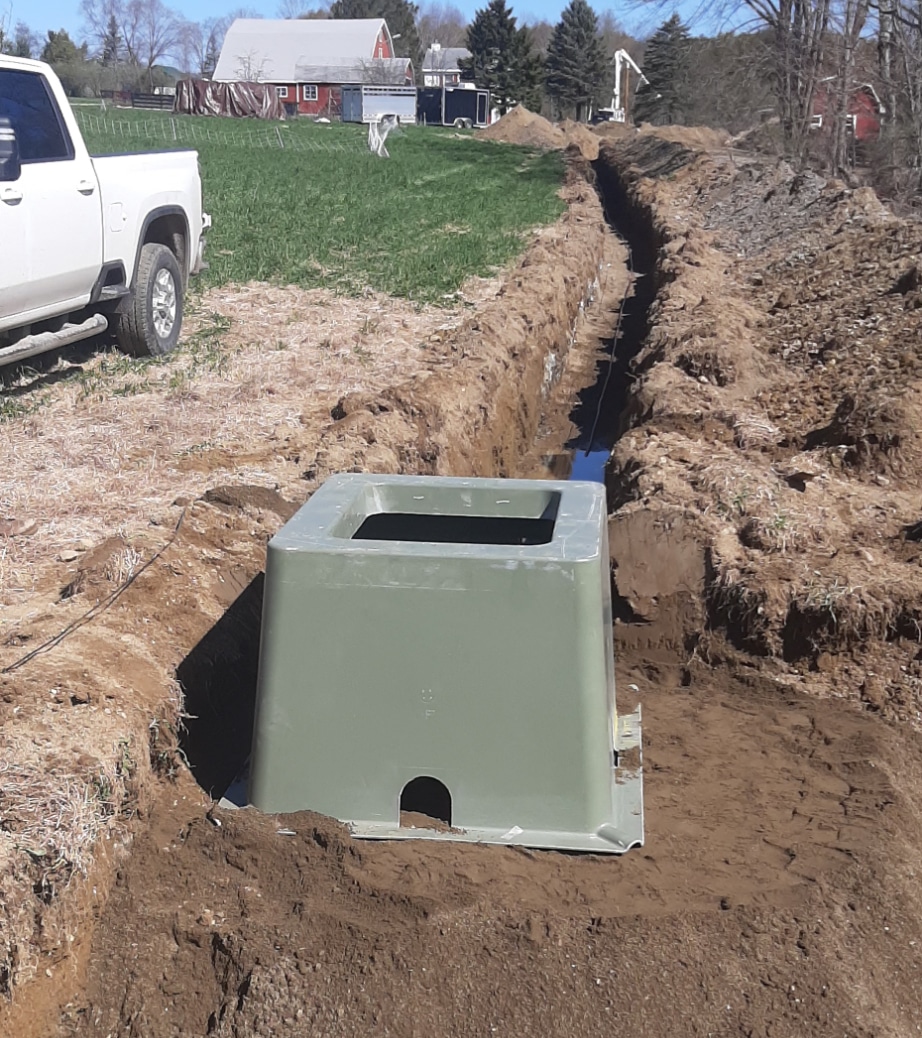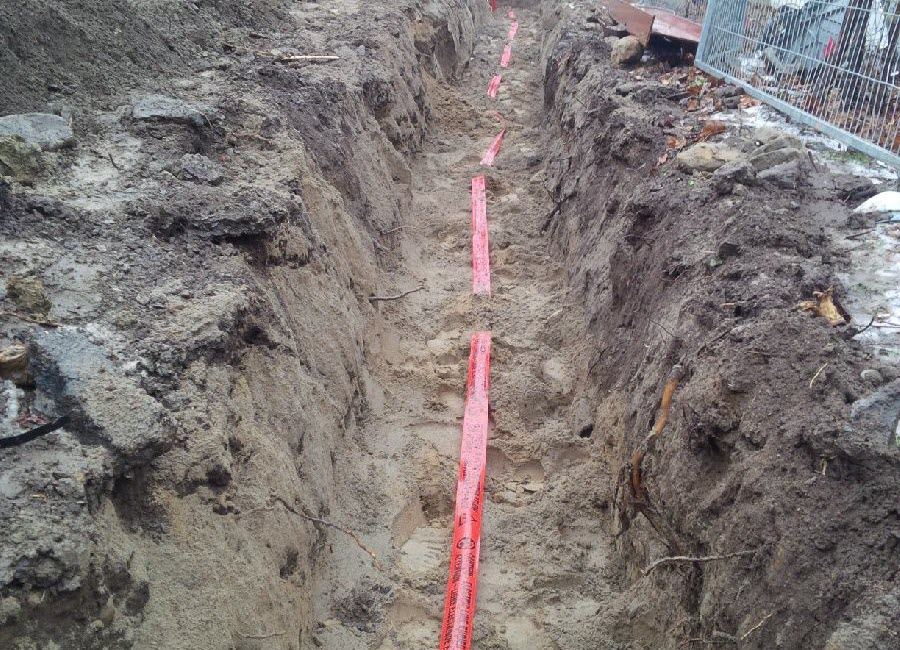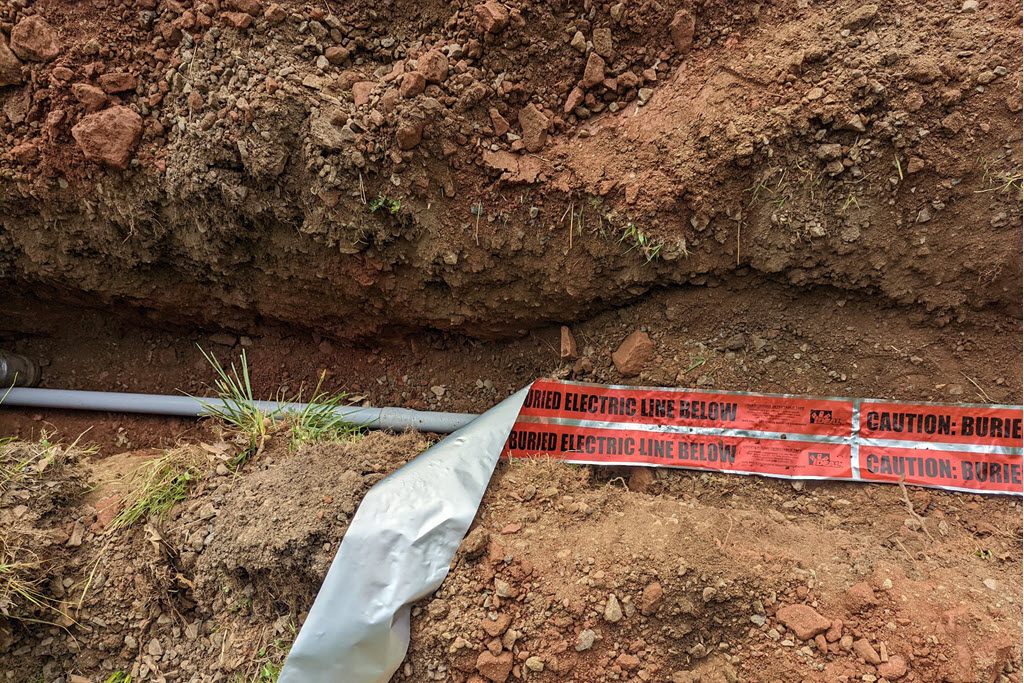Electric Line Servicesin Utica MI
Service Electrical Lines Installed for Safe and Reliable Power
We Are Locally Owned & Operated For Over 37 Years
Contact Us Today!
We Serve Businesses In And Around The Following Cities:
About Electric Line Services
Understanding Electric Line in the City of Utica for Commercial Properties
Given the rapidly evolving digital landscape, the importance of reliable, efficient, and effective electric lines has never been more prominent within commercial properties in Utica. With the city’s continued urban development and the increasing reliance on technology, an established electric line infrastructure is vital to support the business entities residing within these spaces. Providing an optimal balance of power distribution, safety features, and technical usability, electric lines serve a critical function that influences the day-to-day operations of commercial establishments.
Defining the Electric Line Installation Process
At the most fundamental level, the process of electrical installation involves grounding electricity and setting up proficient electrical systems. The authorities at D&J Contracting carefully assess the power requirements of the commercial space and strategize the electric line installation accordingly. The process begins with site evaluation, including comprehensive checks for existing electrical systems, determining the electrical load, and evaluating potential risks.
In the next stage, the design and layout of the electrical system are finalized, which then leads to the procurement of the necessary materials and equipment. Grounding electricity is a critical part of this process, as it prevents harm caused by electrical faults and protects the overall system stability. After successful installation, testing and inspections are carried out to ensure proper function and safety before handing over to the client.
Benefits of a Reliable Electric Line Infrastructure
A robust electric line infrastructure benefits businesses in several ways. First, it ensures seamless operations as high-quality electrical systems are less likely to suffer from faults and failures. Secondly, it contributes to workplace safety by mitigating risks associated with power surges, electrical fires, and system failures. Finally, it also leads to financial savings in the long term as fewer repairs and replacements would be needed.
Significance of Ground Electricity
Ground electricity is a key component in the installation of electric lines. It functions as a direct pathway for electrical energy to disperse into the earth in case of an overload. Without it, electrical faults could lead to power surges causing significant damage to appliances, or worse, fire outbreaks. D&J Contracting prioritizes the grounding of electricity for all of their commercial installations, emphasizing the safety of the property and people within.
Real-World Applications and Case Studies
Electric lines positively impact countless businesses around Utica. For instance, a tech company recently relocated to Utica and hired D&J Contracting for their office’s electrical installation. Thanks to the installation of electric lines, the company can now effortlessly manage its high-tech infrastructure, run exhaustive operations, and maintain its highly sophisticated equipment. They reported increased productivity and fewer electrical-related issues after the setup.
In another instance, a local retail store owner in Utica upgraded their property’s electric line infrastructure. The newly installed system provided better safety measures, significantly reducing the risk of electrical hazards and consequently, lowering their insurance premiums. These and many other cases emphasize the cardinality of electric lines in commercial properties.
Companies such as D&J Contracting realize these needs and provide high-quality services catered to individual business requests. With countless such successful installations under their belt, they continue to contribute to the elevation of commercial infrastructure in Utica.
In the current age of digital warfare, commercial property owners need to give serious consideration to their property’s electrical infrastructure. Identifying and partnering with an experienced and knowledgeable electrical contractor such as D&J Contracting can alleviate the challenges faced due to insufficient or outdated electric lines. Further, a complex and intricate endeavor such as this requires considerable preparation and strategic execution. Continuing this dialogue and increasing awareness about this critical subject is elemental to the progress of Utica and its commercial landscape.
Electric Line Services Gallery


Call Us Today to receive your Free Quote for
Electric Line in Utica
Serving: Utica, Michigan

About Utica, Michigan
The city now known as Utica was platted by Joseph Stead in 1829, who named it “Harlow”. Others referred to the community as “Hog’s Hollow” or “McDougalville”, until a few years later it was named “Utica” by settlers from New York, in honor of the city of the same name in that state. This was common of settlers in this region, and is reflected in the names of nearby cities such as Rochester, Troy, and Livonia that are also named for New York cities.
By the 1940s, Utica was the center of a region of dairy farms and truck gardens. It had a flour mill and shipped rhubarb. Dodge Park a few miles south on the Clinton River was a state park.
As the 1950s progressed, Detroit auto companies began to build factories in neighboring Sterling and Shelby Townships, and the surrounding area began a transformation to an industrial economy.
Utica boasts a small historic district centered on Cass Avenue and Auburn Road, but few of the buildings predate 1906, due to destructive fires in 1905 and 1906.
Utica is in western Macomb County, bordered to the south by the city of Sterling Heights and to the north by Shelby Charter Township. Highways M-53 and M-59 serve the city. M-53 crosses the east side of the city, leading north 13 miles (21 km) to Romeo and south 8 miles (13 km) to Warren, while M-59 runs along the southern border of the city, leading east 8 miles (13 km) to Interstate 94 and west 15 miles (24 km) to Pontiac. Downtown Detroit is 21 miles (34 km) to the south.
According to the U.S. Census Bureau, Utica has a total area of 1.78 square miles (4.61 km), of which 0.02 square miles (0.05 km) are water. The Clinton River passes through the center of the city, flowing southeast and then east to Lake St. Clair.
| Census | Pop. | Note | %± |
|---|---|---|---|
| 1880 | 493 | — | |
| 1890 | 563 | 14.2% | |
| 1900 | 562 | −0.2% | |
| 1910 | 496 | −11.7% | |
| 1920 | 588 | 18.5% | |
| 1930 | 873 | 48.5% | |
| 1940 | 1,022 | 17.1% | |
| 1950 | 1,196 | 17.0% | |
| 1960 | 1,454 | 21.6% | |
| 1970 | 3,504 | 141.0% | |
| 1980 | 5,282 | 50.7% | |
| 1990 | 5,081 | −3.8% | |
| 2000 | 4,577 | −9.9% | |
| 2010 | 4,757 | 3.9% | |
| 2020 | 5,245 | 10.3% | |
| U.S. Decennial Census | |||
As of the census of 2010, there were 4,757 people, 2,218 households, and 1,245 families living in the city. The population density was 2,781.9 inhabitants per square mile (1,074.1/km). There were 2,463 housing units at an average density of 1,440.4 per square mile (556.1/km). The racial makeup of the city was 90.4% White, 1.9% African American, 0.5% Native American, 3.5% Asian, 1.9% from other races, and 1.8% from two or more races. Hispanic or Latino of any race were 3.8% of the population.
There were 2,218 households, of which 23.6% had children under the age of 18 living with them, 37.8% were married couples living together, 14.0% had a female householder with no husband present, 4.3% had a male householder with no wife present, and 43.9% were non-families. 38.0% of all households were made up of individuals, and 15.9% had someone living alone who was 65 years of age or older. The average household size was 2.13 and the average family size was 2.80.
The median age in the city was 41.7 years. 17.9% of residents were under the age of 18; 8.8% were between the ages of 18 and 24; 27.4% were from 25 to 44; 28.3% were from 45 to 64; and 17.4% were 65 years of age or older. The gender makeup of the city was 47.4% male and 52.6% female.
As of the census of 2000, there were 4,577 people, 1,952 households, and 1,184 families living in the city. The population density was 2,578.2 inhabitants per square mile (995.4/km). There were 2,005 housing units at an average density of 1,129.4 per square mile (436.1/km). The racial makeup of the city was 93.77% White, 0.92% African American, 0.37% Native American, 2.56% Asian, 0.74% from other races, and 1.64% from two or more races. Hispanic or Latino of any race were 2.10% of the population.
There were 1,952 households, out of which 27.2% had children under the age of 18 living with them, 43.8% were married couples living together, 13.3% had a female householder with no husband present, and 39.3% were non-families. 34.2% of all households were made up of individuals, and 10.8% had someone living alone who was 65 years of age or older. The average household size was 2.29 and the average family size was 2.96.
In the city, the population dispersal was 21.0% under the age of 18, 9.6% from 18 to 24, 31.7% from 25 to 44, 23.2% from 45 to 64, and 14.5% who were 65 years of age or older. The median age was 37 years. For every 100 females, there were 92.9 males. For every 100 females age 18 and over, there were 91.8 males.
The median income for a household in the city was $38,683, and the median income for a family was $57,156. Males had a median income of $36,912 versus $26,353 for females. The per capita income for the city was $21,615. About 4.8% of families and 7.0% of the population were below the poverty line, including 6.7% of those under age 18 and 17.3% of those age 65 or over.
Utica Community Schools operates public schools, including Utica High School, Eppler Junior High School Flickinger Elementary School, and Wiley Elementary School. They serve the communities of Sterling Heights, Utica, and Shelby Township.
Call Us Today to receive your Free Quote for
Electric Line in Utica
Related Services in Utica, Michigan
We Serve Businesses In The Following Zip Codes:
48007, 48015, 48021, 48026, 48035, 48036, 48038, 48042, 48043, 48044, 48045, 48046, 48047, 48048, 48050, 48051, 48066, 48071, 48080, 48081, 48082, 48083, 48084, 48085, 48088, 48089, 48090, 48091, 48092, 48093, 48098, 48099, 48225, 48230, 48236, 48310, 48311, 48312, 48313, 48314, 48315, 48316, 48317, 48318, 48397